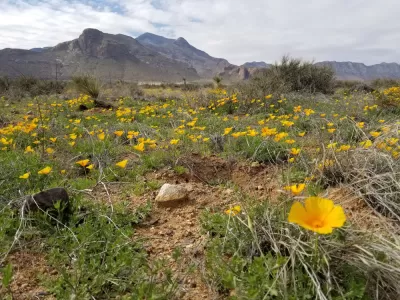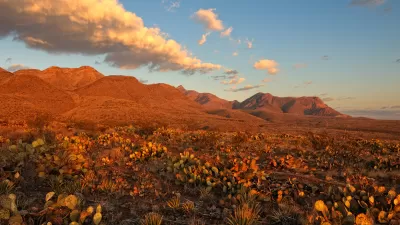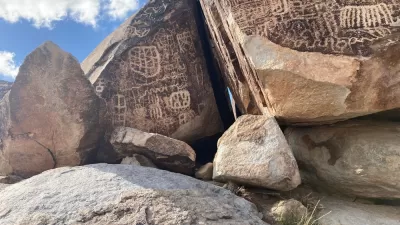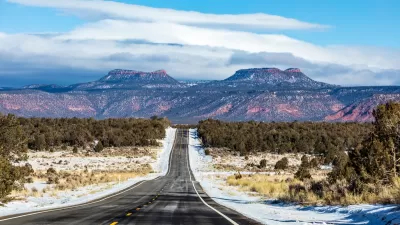An opinion piece written by a Texas Congressional representative explains how the proposed Castner Range National Monument would expand on "America's Best Idea."

Public lands, administered by the National Park Service, the Bureau of Land Management, and state agencies and created through the Antiquities Act and congressional action, have protected millions of acres of land and water from the degradation of humanity, according to an opinion piece written by Rep. Veronica Escobar (D-Texas) and Mark Magaña. But the county's public lands have always been a sad reflection of its broader racial and economic inequities:
This movement established what many called America's Best Idea, but also reproduced many of the inequalities we see so clearly in so many of our institutions - our federally protected lands, waters, and oceans have for too long been overwhelmingly inaccessible, stripped of their cultural significance to indigenous people, and often unwelcoming to people of color and immigrants.
The proposed Castner Range National Monument would change that history, according tp the article, by creating protected open spaces close to the city of El Paso, "home to one of the nation's oldest and largest Latino populations."
The article is pressing for President Joe Biden to invoke the Antiquities Act in declaring the area a national monument, elaborating on the case for Castner Range to be added to the list of lands protected by the federal government:
Castner Range has all the hallmarks of a 21st century conservation movement centered on justice and equity. It will connect underserved communities of El Paso to the Franklin Mountains and one of the largest urban state parks in the country, where tens of thousands of families enjoy hiking the arroyos, biking, camping - cooking carne asada surrounded by Mexican poppies, barrel cactus, and long views into our sister city of Juárez.
More reasons for President Biden to make the caster Range National Monument official are included in the source article.
FULL STORY: Public lands that look like America

Study: Maui’s Plan to Convert Vacation Rentals to Long-Term Housing Could Cause Nearly $1 Billion Economic Loss
The plan would reduce visitor accommodation by 25,% resulting in 1,900 jobs lost.

North Texas Transit Leaders Tout Benefits of TOD for Growing Region
At a summit focused on transit-oriented development, policymakers discussed how North Texas’ expanded light rail system can serve as a tool for economic growth.

Why Should We Subsidize Public Transportation?
Many public transit agencies face financial stress due to rising costs, declining fare revenue, and declining subsidies. Transit advocates must provide a strong business case for increasing public transit funding.

How Community Science Connects People, Parks, and Biodiversity
Community science engages people of all backgrounds in documenting local biodiversity, strengthening connections to nature, and contributing to global efforts like the City Nature Challenge to build a more inclusive and resilient future.

Alabama: Trump Terminates Settlements for Black Communities Harmed By Raw Sewage
Trump deemed the landmark civil rights agreement “illegal DEI and environmental justice policy.”

Dear Tesla Driver: “It’s not You, It’s Him.”
Amidst a booming bumper sticker industry, one writer offers solace to those asking, “Does this car make me look fascist?”
Urban Design for Planners 1: Software Tools
This six-course series explores essential urban design concepts using open source software and equips planners with the tools they need to participate fully in the urban design process.
Planning for Universal Design
Learn the tools for implementing Universal Design in planning regulations.
City of Santa Clarita
Ascent Environmental
Institute for Housing and Urban Development Studies (IHS)
City of Grandview
Harvard GSD Executive Education
Toledo-Lucas County Plan Commissions
Salt Lake City
NYU Wagner Graduate School of Public Service





























